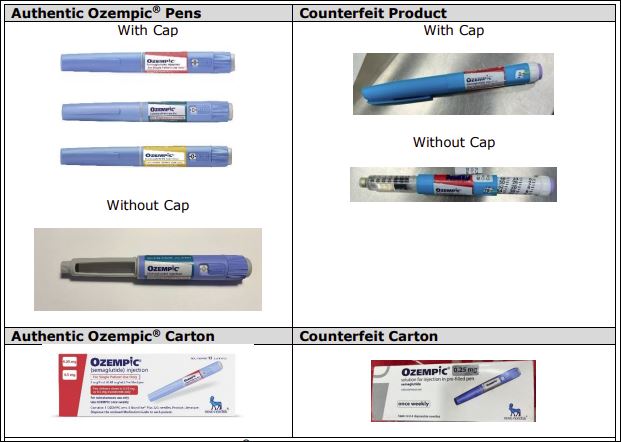Semaglutide Knockoffs :
Let’s remember Ozempic, Wegovy, Mounjaro and Zepbound are all compounded for injections. They are also chronically in short supply and extremely expensive. So it is no surprise that illicit knockoffs as well as dangerous ingredients (salts) are on the market.
Here is a history of some compounding disasters:
- In 2012, a fungal meningitis outbreak caused by contaminated steroid injections from a compounding pharmacy killed 64 people and sickened over 750
- In 2015, a compounding pharmacy in Texas recalled all of its sterile products after 17 patients developed eye infections from using its compounded eye drops
- In 2017, a compounding pharmacy in Massachusetts was sentenced to nine years in prison for racketeering and fraud, after producing substandard and adulterated drugs that caused a deadly fungal meningitis outbreak in 2012
- In 2019, a compounding pharmacy in Florida was shut down by the FDA after inspectors found mold, bacteria, and filth in its facility, as well as evidence of poor quality control and testing
Compounding requires strict and sterile facilities and technique. For this reason, the FDA regulates compounding. One counterfeit product appears to have contained another type of diabetes medication, insulin glargine injection, that works differently than Ozempic®, which reportedly led to an adverse reaction.
Novo Nordisk found impurities in all the drugs tested from Wells Pharmacy and Brooksville Pharmaceuticals, both based in Florida. Novo first sued Brooksville in July, and discovered a substance called BPC-157 in samples from Wells.
Novo said the compounded versions of Wegovy tested from Brooksville were also less potent than advertised, with one sample shown to be at least 19% weaker than indicated.
The U.S. Food and Drug Administration banned BPC-157 from use in compounded drugs in September, saying it did not have enough data to know whether it was harmful to humans, but that it could cause dangerous immune system reactions.
The FDA is currently investigating hospital admissions as well as at least one death due to compounding.

Due to unprecedented demand for the GLP-1 receptor agonist, supply shortages of the injectable forms have resulted in more and more compounded versions of the drug popping up on the market, and the agency said it has received reports of adverse events associated with these formulations, along with reports of compounders using semaglutide sodium and semaglutide acetate.
Please note that Novo Nordisk and Eli Lilly do not sell their ingredients for compounding to other labs.
Scott Brunner, CEO of the Alliance for Pharmacy Compounding (APC), said , “What some of these online sites are doing is selling directly to a patient without a prescription, and they’re telling the patient, ‘Hey, this is semaglutide.’ In some instances, it may well be — it’s often marked ‘research grade,’ ” Brunner said, adding that unlike with a compounded medication, a purchaser cannot verify what they are buying. “It’s absolutely sketchy stuff. But that’s not pharmacy, and that’s not compounding.”
So don’t be fooled. Don’t risk your health and potentially your life by trying to save a few bucks. The risks of using non FDA approved semaglutide products, especially those injected and require strict adherence to compounding protocol, is not only risky but potentially deadly. If you do have a valid prescription, please only use licensed pharmacies and licensed pharmacists to provide you with a safe semaglutide journey. And keep in mind: If you do not change your diet, exercise routines and lifestyle, it is likely that when you stop these meds you will likely return to your prior weight (and appetite).

